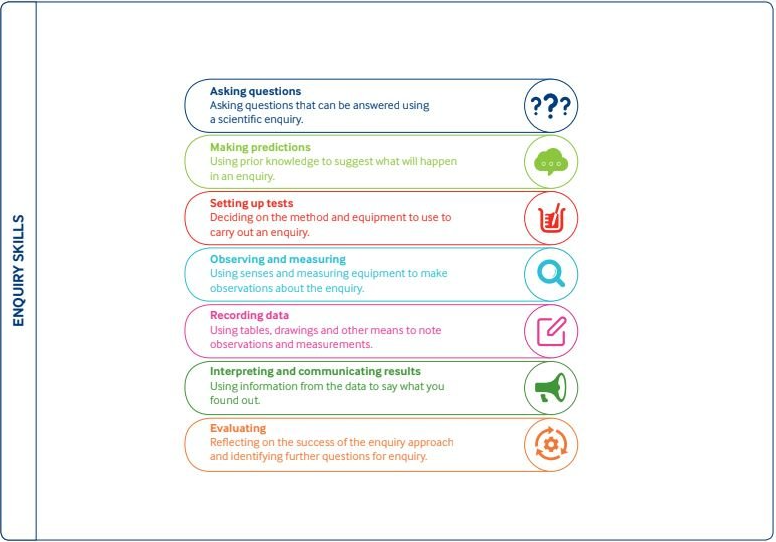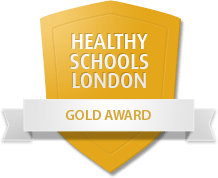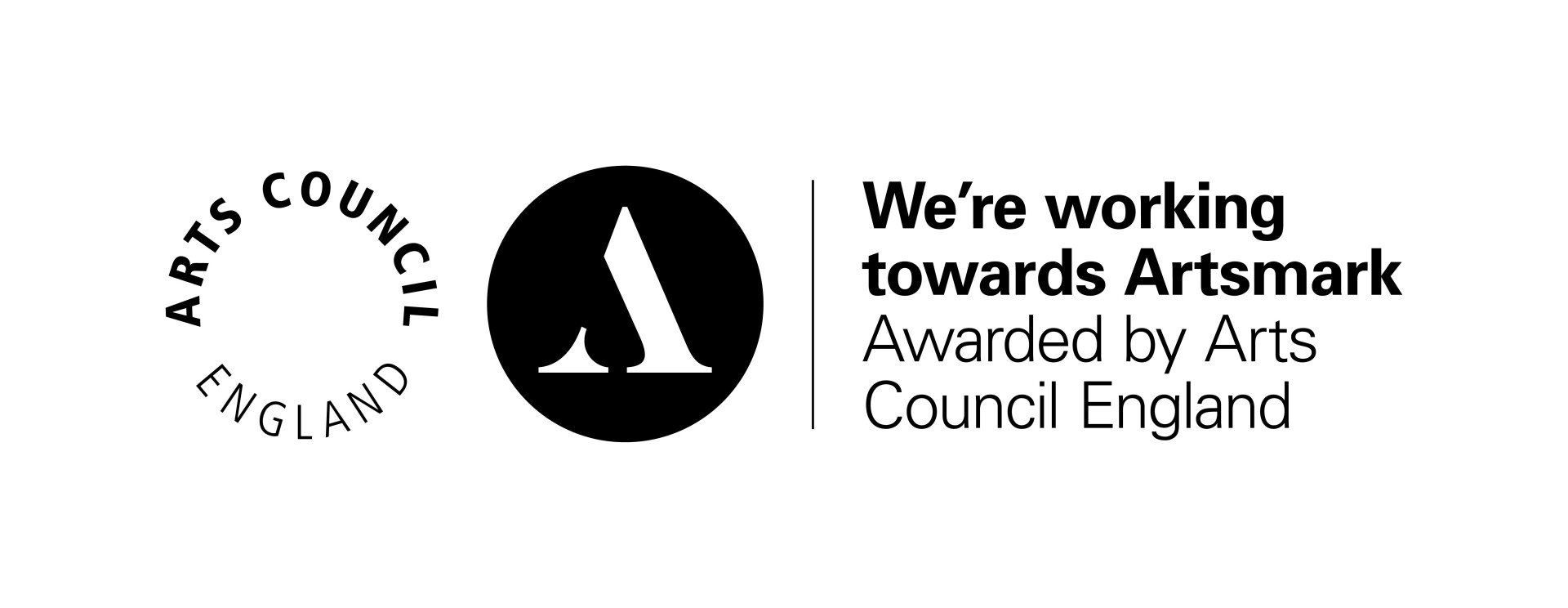Article 29 – Education must develop every child’s personality, talents and abilities to the full. It must encourage the child’s respect for human rights as well as respect for their parents, their own and other cultures and their environment.
Science
Curriculum

Science at Grafton
Grafton Primary Science Principles
At Grafton Primary School, we believe that a high-quality science education provides the foundation for understanding the world through the specific disciplines of Biology, Chemistry and Physics. Science has changed our world on a personal, national and global level and as such, we strive to develop the children’s understanding of scientific ideas by providing opportunities for the children to explore the world around them. We aim to stimulate a child’s curiosity through building up a body of key foundational knowledge and concepts, and encourage them to recognise the power of rational explanation. Our teachers encourage children to understand how science can be used to explain what is occurring; develop methods of enquiry and carry out purposeful investigations.


In May 2021 Grafton Primary School was awarded the Primary Science Quality Mark to celebrate its commitment to excellence in science teaching and learning. So far, since its national launch in 2010, over 4000 schools across the UK have achieved a prestigious Primary Science Quality Mark.
The Primary School Quality Mark programme ensures effective leadership of science, enables schools to work together to share good practice and is supported by professional development led by local experts. It encourages teacher autonomy and innovation while at the same time offering a clear framework for development in science subject leadership, teaching and learning. Schools that achieve PSQM demonstrate commitment and expertise in science leadership, teaching and learning.
The Primary Science Quality Mark is led by the University of Hertfordshire, School of Education in collaboration with the Primary Science Teaching Trust.
Associate Professor Jane Turner, PSQM National Director said: “There was never a more important time for primary children to have a high-quality science education. The Coronavirus Pandemic has made everyone aware of the impact of science on our daily lives. Primary schools have an important role to ensure that children understand how science works and keeps us healthy and safe. Schools that have achieved a Primary Science Quality Mark have demonstrated a significant commitment to science teaching and learning, even at this challenging time for schools. The profile and quality of science in each awarded school is very high. Children are engaging with great science both in and outside the classroom, developing positive attitudes towards science as well as secure scientific understanding and skills. Science subject leaders, their colleagues, head teachers, children, parents and governors should be very proud.”
“The science leader, Alan Geary, along with Emma Davey, should be congratulated on their determination and perseverance in leading the PSQM process and completing the submission during the challenges of the Covid-19 pandemic. They have worked very hard to raise the profile of science by introducing new practices which are beginning to have a positive impact on staff and pupils.”
“A strength of this submission is cross-curricular linking between science and other subjects plus initiatives such as Healthy Schools, Rights Respecting Schools and eco-issues which all help to develop children’s scientific literacy and science capital. Being part of the PSTT Cluster is bringing new opportunities with high quality resources and ideas being used by staff to improve teaching and learning. PSQM is considered the appropriate award at this time. I wish you every success for the future and I am sure that Grafton Primary will continue to develop and embed the improvements made this year. Congratulations!”
Janet Barentt – Senior PSQM Hub Leader
| Subject | Autumn 1 | Autumn 2 | Spring 1 | Spring 2 | Summer 1 | Summer 2 |
|---|---|---|---|---|---|---|
| Year 1 | Seasons - Autumn Senses (hearing, sight, touch, smell, taste) | Seasons – Winter Everyday materials To identify and name a variety of everyday materials. To compare and group everyday materials. | To identify and name a variety of everyday materials. To compare and group everyday materials. | Seasons - Spring | Animal antics and labelling plants | Seasons –summer To identify and name a variety of common animals, including fish, amphibians, reptiles, birds and mammals. To describe and compare different animals, birds and fish. |
| Year 2 | Living things and their habitats including food chains | Materials Material choices in a car Testing different materials for these roles | Apprentice gardener Plants | The Apprentice gardener | Growing up | Materials Testing material properties for a toy boat – buoyancy and waterproof |
| Year 3 | Plants – How does your garden grow? | Forces – The power of forces | Light – can you see me? | Plants: How does your garden grow? Part 2 Barking Park Trip | Rocks: Rock Detectives | Animals, bones, nutrition. Amazing Bodies |
| Year 4 | Animals, including humans (Where does all our food go?) | Sound (Good Vibrations) | States of matter (In a State) | Electricity (Switched On) | Living things and their habitats (Human Impact) | Living things and their habitats (Human Impact) |
| Year 5 | Living things and their habitats | Forces | Earth and Space | Properties of materials and changes in materials. | Properties of materials and changes in materials | Animals including humans. |
| Year 6 | Electricity | Circulatory System – The Heart | Light (Light Up the World) | Evolution and inheritance (Everyday Changes) | Evolution and inheritance (Everyday Changes) | Living things and their habitats (The Nature Library) |
| Subject | Autumn 1 | Autumn 2 | Spring 1 | Spring 2 | Summer 1 | Summer 2 |
|---|---|---|---|---|---|---|
| Year 1 | Seasons - Autumn Senses (hearing, sight, touch, smell, taste) | Seasons – Winter Everyday materials To identify and name a variety of everyday materials. To compare and group everyday materials. | To identify and name a variety of everyday materials. To compare and group everyday materials. | Seasons - Spring | Animal antics and labelling plants | Seasons –summer To identify and name a variety of common animals, including fish, amphibians, reptiles, birds and mammals. To describe and compare different animals, birds and fish. |
| Year 2 | Living things and their habitats including food chains | Materials Material choices in a car Testing different materials for these roles | Apprentice gardener Plants | The Apprentice gardener | Growing up | Materials Testing material properties for a toy boat – buoyancy and waterproof |
| Year 3 | Plants – How does your garden grow? | Forces – The power of forces | Light – can you see me? | Plants: How does your garden grow? Part 2 Barking Park Trip | Rocks: Rock Detectives | Animals, bones, nutrition. Amazing Bodies |
| Year 4 | Animals, including humans (Where does all our food go?) | Sound (Good Vibrations) | States of matter (In a State) | Electricity (Switched On) | Living things and their habitats (Human Impact) | Living things and their habitats (Human Impact) |
| Year 5 | Living things and their habitats | Forces | Earth and Space | Properties of materials and changes in materials. | Properties of materials and changes in materials | Animals including humans. |
| Year 6 | Electricity | Circulatory System – The Heart | Light (Light Up the World) | Evolution and inheritance (Everyday Changes) | Evolution and inheritance (Everyday Changes) | Living things and their habitats (The Nature Library) |
ABOUT
Contact Us
We will get back to you as soon as possible.
Please try again later.






All Rights Reserved | Grafton Primary School
Copyright 2022 | Website design by Kittle Visual Marketing

